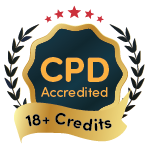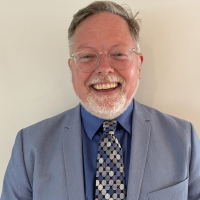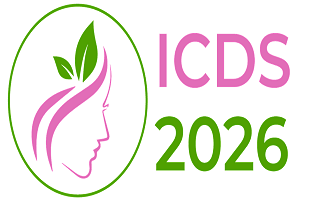3rd International Conference on
Dermatology & Skincare
April 16-17, 2026 | Chicago, USA

Address: 9300 Bryn Mawr Avenue, Rosemont, IL 60018, United States
ICDS 2026

Hebei University of Technology, USA
Abstract:
Twin
base linkers (TBLs) are biocompatible, biodegradable nanomolecules capable of
self-assembly to form rosette nanotubes (RNTs) under physiological conditions.
TBLs have been suggested for use in drug delivery due to the presence of a
hollow core in RNTs that can accommodate drugs, including hydrophobic drugs.
TBLs contain covalently linked pairs of guanine-like and cytosine-like bases.
Six such pairs form a six-member twin rosette stabilized by 36 hydrogen bonds,
and the rosettes stack to form RNTs due to dispersion forces, base stacking
interactions, and hydrophobic bonding. The outer surface of RNTs is
hydrophilic, rendering them water soluble. RNTs have been shown to bind to
cells, to enhance cell growth, and to have other beneficial actions on cells and
tissues. TBLs can be functionalized with peptides, amino acids, or other
biomolecules to impart biological properties such as fighting cancer,
increasing tissue growth, killing bacteria, passivating viruses, etc. In this
talk, in vitro and in vivo results will be shown in which TBLs were used to
treat various skin disorders including but not limited to cancer, psoriasis,
acne, scars, infection, and more.
Biography:
Thomas J. Webster’s (H index:
127) degrees are in chemical engineering from the University of Pittsburgh
(B.S., 1995; USA) and in biomedical engineering from RPI (Ph.D., 2000; USA). He
has formed over a dozen companies who have numerous FDA approved medical
products currently improving human health in over 30,000 patients. His technology is also being used in
commercial products to improve sustainability and renewable energy. He is
currently helping those companies and serves as a professor at Brown
University, Saveetha University, Hebei University of Technology, UFPI, and
others. Dr. Webster has numerous awards
including: 2020, World Top 2% Scientist by Citations (PLOS); 2020, SCOPUS
Highly Cited Research (Top 1% Materials Science and Mixed Fields); 2021,
Clarivate Top 0.1% Most Influential Researchers (Pharmacology and Toxicology);
2022, Best Materials Science Scientist by Citations (Research.com); and is a
fellow of over 8 societies. Prof.
Webster is a former President of the U.S. Society for Biomaterials and has over
1,350 publications to his credit with over 55,000 citations. He was recently
nominated for the Nobel Prize in Chemistry. Prof. Webster also recently formed
a fund to support Nigerian student research opportunities in the U.S.
